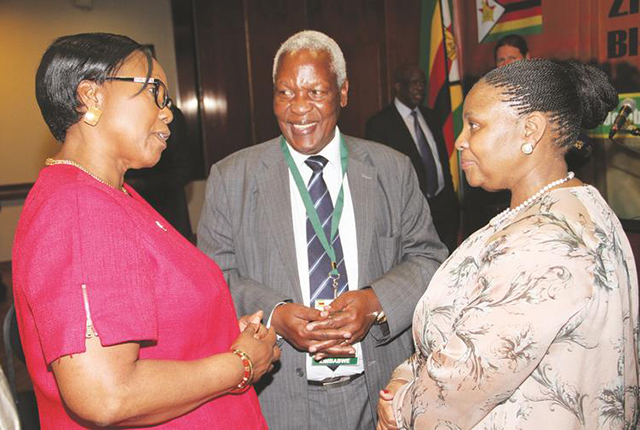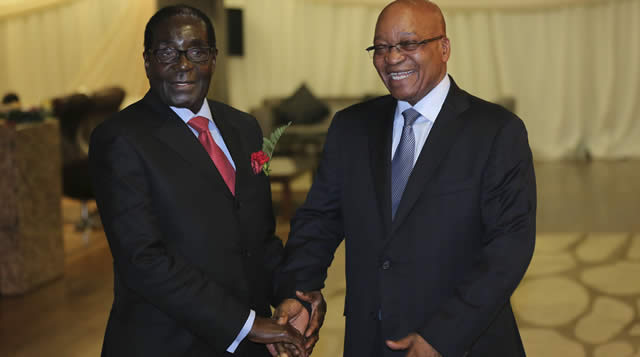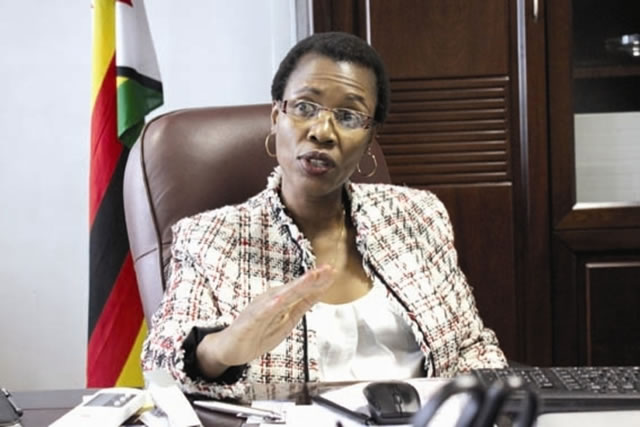SA adds voice to UN reform calls


Environment, Water and Climate Minister Oppah Muchinguri-Kashiri (left) and Defence Minister Dr Sydney Sekeramayi (centre) chat with South Africa’s Minister of Defence Nosiviwe Maphisa-Nquakula (right) during the two countries’ Bi-National Commission in Harare yesterday. — (Picture by John Manzongo)
Felex Share Senior Reporter—
Time has come for Africa to raise its voice louder and push for key reforms in the United Nations Security Council, South Africa’s International Relations and Cooperation Minister Ms Maite Nkoana-Mashabane has said.
She said Africa had become “impatient” with regards to UN reforms adding that the changes should also reach global multilateral financial institutions whose direction was controlled by Western countries.
Giving her opening remarks during a meeting of ministers attending the Bi-National Commission between Zimbabwe and South Africa in Harare yesterday, Ms Nkoana-Mashabane said the UN and international financial institutions should be reorganised to reflect the needs of emerging economies.
“We call for reforms in the United Nations in particular the Security Council that was formed more than 70 years with no input from a single African country,” she said.
“We also call upon the (incoming) United Nations secretary-general (Antonio Guterres of Portugal), as we congratulate him, that Africans are becoming impatient of a United Nations Security Council that discusses issues of peace and security on our continent, which is about us without us. We will work together firmly and we will raise our voices louder for these reforms that should also include reforms of international financial institutions.”
Mr Guterres takes over from Mr Ban-Ki Moon in January next year. President Mugabe has made repeated calls for the reform of the Security Council saying other countries had been made “dwarfs” while the five countries, popularly known as the “Big Five” dominated the most powerful UN arm.
The five, which have veto powers, are China, France, the Russian Federation, the United Kingdom and the United States. African countries, under the Ezulwini Consensus agreed to in 2005, are pressing for two permanent seats in the UN Security Council as well as five non-permanent seats. Western countries have refused to give in to Africa’s demands.
As for the World Bank and the IMF, chiefs are traditionally appointed from the United States and Europe respectively, reflecting the dominance of industrialised countries in the funding and voting rights of the institutions.
Ms Nkoana-Mashabane said African countries had to be self-reliant if they were to industrialise. “Coming back home we continue to look at issues of peace and security in our region like issues in Lesotho, Democratic Republic of Congo and other countries in the neighbourhood and not so far away like South Sudan. We continue to play our part in resolving the existing challenges.”
Foreign Affairs Minister Simbarashe Mumbengegwi, said during the BNC, Zimbabwe and South Africa would discuss global issues of mutual interest. “This has set the stage for us to reaffirm our support and solidarity with the Saharawi Arab Democratic Republic in their quest for self-determination and national sovereignty as a full and unqualified member of the African Union,” he said.
“The founding principles of the African Union must be respected by all member states including those who may aspire to become members of the Union. These are explicitly spelt out in the founding document, the AU Constitutive Act.”
Minister Mumbengegwi added: “On global issues, the AU’s common position on the reform of the United Nations Security Council is clearly spelt out in the Ezulwini Consensus and the Sirte Declaration.”











Comments